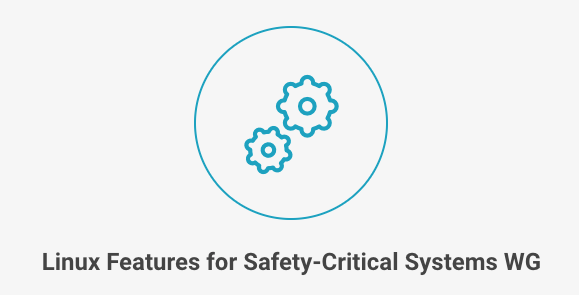Written by Elana Copperman, ELISA project ambassador, Chair of the Linux Features for Safety-Critical Systems Working Group and System Safety Architect at Mobileye (Intel)

The Linux Features for Safety-Critical Systems (LFSCS) WG aims to feed into the OSEP and other WGs, working together as a team. LFSCS invites engineers, architects and integrators who actually develop and deploy Linux-based safety-critical systems to contribute from their practical experience and knowledge. In particular, to identify existing Linux kernel features that may be leveraged for use in safety-critical systems.
For example:
- Mechanisms for protection of various memory types; e.g. protection from faults due to uninitialized variables or stack overflow.
- Dynamic analysis for multi-threaded systems; e.g. tests based on tools such as TSAN or ASAN.
- Kernel profiling using ebpf-based tools; e.g. perf-tools or bpftrace
- AER (Advanced Error Reporting) for fault handling; e.g. PCIe fault handling
- Safety extensions to Linux drivers; e.g. fault handling support and bridging the gap between hardware-based safety features and application layer fault handling.
The WG mailing list is open to registration here, and we are seeing an amazing group of contributors who can demonstrate use of such features in real systems, and help ELISA to learn from these experiences. Initially, we will investigate existing features but will also propose enhancements to such features and to work as a community to design / implement / deploy kernel patches. The goal of such patches will be to help make those features more amenable for use in safety critical systems. Our Github playground is here.
The alliance with ELISA, and with the new Open Source Engineering Process Working Group in particular, is a critical aspect of this effort. We will be working together to help ensure that those patches and features can be used by designers and integrators producing safety critical systems.
The scope of this WG does not include safety qualification or any safety claims on how the integrator can or should use these features or patches. The only claims that would be made are a description of the feature and its functional impact.
The WG will be formally kicked off at the upcoming ELISA workshop (November 8-10). We will be giving an overview of the working group and answer any questions on November 8 at 3 pm CET. We will be scheduling weekly meetings following the workshop. If the technical challenge of enabling real change in deploying open source Linux-based software for safety critical systems excites you, come join and help us meet the challenges!
You can still register for the Fall workshop, which is being held virtually and is free to attend. All registrants will be able to watch the sessions on-demand. Register here today!